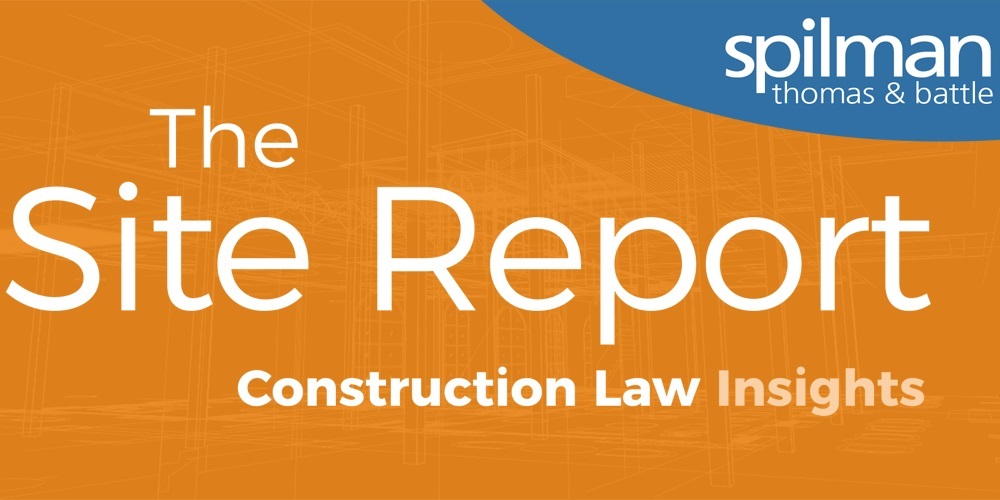Article
Resources
Article
EEOC Increases Scrutiny on Discrimination and Harassment in the Construction Industry as Federal Infrastructure Dollars Start Flowing

The Equal Employment Opportunity Commission (“EEOC”) plans to prioritize its efforts to correct discrimination and harassment in the construction industry following a review of data that revealed the construction sector to be one of the most challenging areas in terms of discrimination and harassment cases. As detailed in its draft Strategic Enforcement Plan (“SEP”) for 2023 through 2027, the EEOC believes that the construction industry suffers from a systemic “lack of diversity” and has become an “area of particular concern.” The EEOC’s SEP is a guidance document that establishes the Agency’s priorities over a multi-year period. By identifying the construction industry as a particular focus area in the SEP, the EEOC is signaling its intent to focus its substantial resources on the construction industry over the next several years.
The Agency’s position as announced in the SEP is a continuation of its increased efforts from 2022. Indeed, in May 2022, the EEOC held a hearing titled, “Knocking Down the Walls: Discrimination and Harassment in Construction,” in which is described how discrimination and harassment in the construction industry has limited opportunities for women and people of color. As EEOC Chair Charlotte A. Burrows stated, “[u]nfortunately, many women and people of color have either been shut out of construction jobs or face discrimination that limits their ability to thrive in these careers.” To correct these barriers, the EEOC will prioritize enforcement of anti-discrimination and anti-harassment laws like Title VII, the Age Discrimination in Employment Act (“ADEA”), and the Americans with Disabilities Act (“ADA”) in the construction industry.
The Agency’s focus on the construction industry coincides with the substantive investment opportunities created by the Infrastructure Investment and Jobs Act signed into law in 2021, which will pour $1.2 trillion into construction projects around the nation. According to the EEOC, this legislation obligates the EEOC to make sure the government is not subsidizing discrimination or harassment.
The nature of work in the construction industry lends itself to increased EEOC scrutiny. First, construction work is often performed on job sites and can be physically demanding and potentially dangerous, which can give rise to disability- and accommodation-related challenges for employers. Second, construction work often involves a wide range of job types—from clerical workers to laborers to engineers—which can create complex power dynamics and communication challenges. Relatedly, there are often numerous “employers” on a job site at any one time, complicating and confusing the employer-employee dynamic. Thirdly, as the EEOC noted in its May 2022 hearing, nearly 82 percent of all construction firms in the United States are small businesses with 10 or fewer employees, meaning there may not be robust human resources policies or personnel that address discrimination or harassment. Finally, there can be a host of other issues associated with an historically male-dominated industry which is evolving toward a more diverse workforce.
The EEOC is not all talk—following its May 2022 hearing, there was a noticeable increase in education and litigation involving construction firms. In June 2022, the EEOC reached a $140,000 settlement with a single construction company to resolve claims of harassment and retaliation by Black employees for bringing complaints. In August 2022, the EEOC reached a $1.75 million dollar settlement with four national construction companies to resolve claims of systemic race and national origin harassment, sexual harassment, and retaliation. In October 2022, a $500,000 settlement was reached with a construction company and related businesses to resolve claims involving Spanish-speaking female employees who were subjected to sexual advances and retaliation. More cases are expected in 2023 as, in addition to the SEP, the EEOC also announced that it was investigating complaints against certain construction companies that have not yet resolved.
Construction companies must take note of this increased EEOC scrutiny. To improve working conditions for all employees, the EEOC has encouraged companies in or around the construction industry to:
- Implement strong policies that prohibit discrimination, harassment, or retaliation in the workplace;
- Review and revise, as necessary, company policies on accommodations for disability or religious practices;
- Analyze job descriptions and job postings to ensure they accurately reflect duties, and eliminate any language favoring a certain gender, race, or able-bodied applicant;
- Conduct regular training for all employees (management included) on these policies;
- Designate certain people (trying to include both women and men) to receive and/or investigate reports of harassment or discrimination;
- Consider posted notices about how to report harassment or discrimination;
- Develop procedures for documenting or generic forms to use when there are reports of harassment or discrimination; and
- Investigate all complaints of harassment or discrimination, whether verbal or written, “formal” or “informal.”
The EEOC also suggests that construction companies actively try to create a more diverse and inclusive workforce. This can include outreach efforts to recruit women and minority candidates for open positions or implementing initiatives to support the development and advancement of these employees once they are hired.
The EEOC is clearly signaling its intent to prioritize and target the construction industry. While daunting, taking proactive steps now, including those outlined above, can help employers create a more positive and productive work environment and avoid costly legal battles in the future. Reach out to legal counsel concerning how to prevent harassment or discrimination in your workforce.



